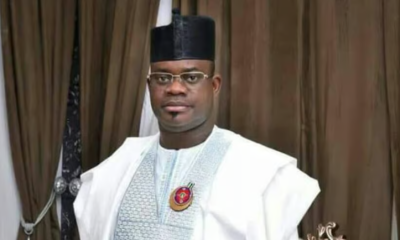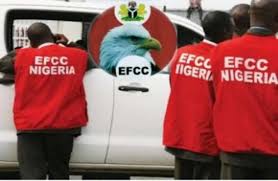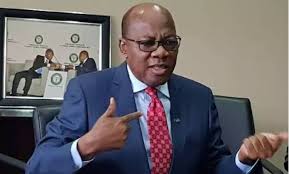THE Economic and Financial Crimes Commission (EFCC) has found itself in a fix over the prosecution of Government Ekpemupolo, a.k.a. Tompolo, whose whereabouts has remained untraceable. Accordingly, the anti-graft agency, last week, postponed charging the ex-Niger Delta militant kingpin with fraud as he remains on the run almost three months after an arrest warrant was issued.
The EFCC has been in search of Government Ekpemupolo since a warrant for his arrest was put out in January. Tompolo is wanted to answer charges of fraud and money laundering amounting to about $231 million (about N46 billion), that was allegedly illegally diverted from the Nigerian Maritime Administration and Safety Agency (NIMASA).
According to a report by Channels television monitored in Lagos, Tompolo was separated from the charges filed by the EFCC at the Federal High Court in Lagos last week against five persons, including NIMASA’s former Director General, Patrick Akpobolokemi, and four companies. The nine parties to the suit pleaded not guilty to 40 counts of conspiracy and money laundering and were granted bail, with the trial adjourned to May 23.
ALSO SEE: Tompolo, vanishing courage, rule of law and hypocrisy
Tompolo was a renowned leader of the Movement for the Emancipation of the Niger Delta (MEND), a coalition of armed militants engaged in arms struggle in the late 1990s into the early 2000s, fighting for the attention of the Federal Government over the plight of the people of the Niger Delta, the country’s oil-producing region.
Members of MEND and other militant groups patrolled the creeks of the Niger Delta, attacking oil pipelines and kidnapping workers, in protest of what they perceived as the unfair distribution of the country’s oil wealth.
At its peak, the Niger Delta militancy cut Nigeria’s oil production to 800,000 barrels per day—less than one third of its 2.5 million maximum capacity. After a presidential amnesty program was introduced in August 2009 by late President Umaru Musa Yar’Adua, the various ex-militants surrendered their weapons and embraced several kinds of training and capacity building for the youths.
Certain former militant leaders like Tompolo enjoyed opportunities for lucrative government contracts in offering security to oil facilities.
Since Tompolo’s arrest warrant was issued, Nigeria has seen a spate of attacks on oil installations that forced the temporary closure of two of four state-run refineries in January. (One refinery was reopened earlier in March.) Nigeria’s power minister Babatunde Fashola said in January that the attacks were costing Nigeria $2.4 million per day and have placed a strain on fuel availability in the West African nation, which is heavily reliant on the oil and gas sector for its economy.
Tompolo isolated himself from the recent attacks but warned that Nigerian President Muhammadu Buhari “should allow the people of the Niger Delta region to know peace, otherwise he will not know peace as well.” Buhari has vowed to deal with militants attacking pipelines, who he referred to as “oil thieves and abductors” in January.

 Health5 days ago
Health5 days ago
 Entertainment1 week ago
Entertainment1 week ago
 Crime6 days ago
Crime6 days ago
 Education1 week ago
Education1 week ago
 Health1 week ago
Health1 week ago
 Comments and Issues7 days ago
Comments and Issues7 days ago
 Football7 days ago
Football7 days ago
 Latest6 days ago
Latest6 days ago











